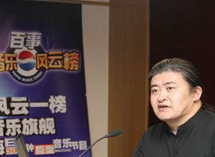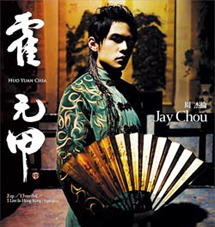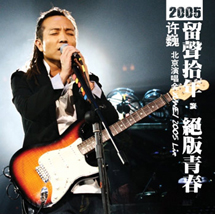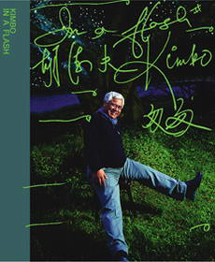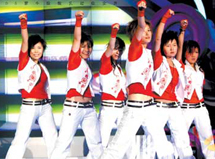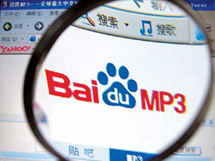| Tools: Save | Print | E-mail | Most Read |
| Review: Chinese Music in 2005 |
| Adjust font size: |
The Grammy and Brit Awards have just announced the results of their outstanding records and individuals of last year for their contributions to the US and European music industries. And on February 20 the Sixth Pepsi Music Chart Awards -- the claim to be the Chinese Grammy awards -- announced the nominations for best music and musicians in 2005. The award ceremony to present the 38 awards is scheduled for March 26 in Shanghai. The Pepsi Music Chart Awards have two big categories: the "Best" and "Most Popular." Music professionals choose in the first category while fans vote in the second. The nomination list shows that Taiwanese pop megastar, Jay Chow, whose album November's Chopin swept KKBOX Online Music Awards three days ago, has earned nine nominations. Mainland veteran rocker Wang Feng's sixth hit record Blooming Life has been nominated eight times.
In the Best New Artist Award Cao Fang, a singer and songwriter, has won high praise from music critics for her latest album Meet Me. She's also nominated in four other categories. However, none of the hot "Super Girls," who appear in the "Most Popular" category -- decided by the votes from the public -- got any nominations in the "professional awards." In essence the awards are a reflection of the Chinese popular music world and trends which emerged in 2005. Looking back at the music world of 2005 in general it's fair to say it was hilarious and weak. The hilarity came from the many amateur "singers" emerging through the Internet, the "Super Girls" television show and movie industry who attempted to challenge the popularity of the professionals. But in reality very few musicians actually dominated the Chinese music world. For 2005 no performers like Sun Nan, Han Hong or Man Wenjun have emerged who could capture an audience immediately by their vocals. Yes, veterans Sun Nan and Tian Zhen did release new albums but they seemed in someway to have lost direction. And there was no great creative "freshness" from the musicians or perhaps they simply failed to produce striking new material. The albums from the likes of the Yu & Quan duo, Li Quan and the "Shui Mu Nian Hua" duo simply reproduced their high quality styles. However, people generally felt there was nothing new about their work. They come up with solid material but there was a distinct lack of any real surprises. Still, 2005 can be remembered for some things.
Xi Shua Shua by the "Flower Show" band is one of them. It's a silly but pleasant song which made those aged from 3 to 40 laugh and sing along. Some people may not have liked it or simply ignored it completely, but like US cult cartoon South Park's Uncle Fucka, it should be given due credit since it could be heard in every karaoke arcade last year. Once the punk band, the Flower Show successfully changed their style. It's unlikely anyone will be able to copy them. While EMI signs top performers like the Flower Show, small independent record companies are always on the hunt for new talent with their own unique personalities. Modern Sky Entertainment Co. Ltd's the Voice Fragments and Fruite-favor VC bands are the current best examples -- the first of these is strong poetry-styled lyrics, while the other writes beautiful, heartbreaking music.
Xu Wei, the rock musician from Xi'an City, held a concert in Beijing Workers' Stadium on August 13, 2005. The concert was one of the highlights of last year as 10,000 nostalgic fans and celebrities including those from the media, other entertainers, record executives, writers and film directors gathered and joined in for a "sing-a-long." The "sing-a-long" was organized to mark the moment when Xu, one of the last generation's musical icons, opened his act and, despite 10 years of difficult experiences in the rock industry, displayed his continued passion for China's rock music from the 1990's onwards. Beijing Youth Daily acclaimed his show as being "definitely an historic performance." Xie Tianxiao, the lead singer of the band XTX and Cold Blooded Animals, became the king of the underground music world when he released his new album X.T.X in 2005. His music and live performances impressed everyone and no one will ever forget his passionate and fascinating show on the Midi Music Festival's stage last October.
And the "Godfather of Chinese Rock 'n' Roll" will never retire -- Cui Jian released his fifth album last March and held his first concert in Beijing for 12 years. And "old-school" Taiwanese musician Kimbo Hu presented his album In A Flash. The 55-year-old folk musical pioneer has never produced an album before. He started a folk music campaign 30 years ago, designed to preserve native music talents. He has been involved in Taiwan pop music and has greatly influenced the Chinese music world. This album -- surely among the best of 2005 -- was made after 30 years of experience in the industry and is sincere and beautiful. Ji Xiang San Bao,a lovely family ballad by Burenbayaer from Inner Mongolia , created a frenzy in 2005 when it was widely spread on Internet. This song, sung in Mongolian, thrilled people with its cuteness, the tenderness of tune and lyrics which perfectly matched family's search for happiness. Burenbayaer later released a world music album Horizon at Poloarts Entertainment Co. Ltd and performed
In 2005 both actors and actresses -- among them Lu Yi, Shao Bing, Li Bingbing, Chen Hao, Huang Yi, Fan Bingbing and many others -- from the movie industry also brought their voices to the music industry but the quality was all too often not up to the standard. The maddest event had to be the "Super Girls" television show -- a talent contest -- inspired by American Idol program.
What more can we say about all this madness? People will not forget the 400 million people who tuned in Hunan TV to watch the Super Girls' final show on August 26, 2005. Over 8 million cell phone votes were sent by fans voting for their favorites. Li Yuchun received over 3.5 million votes and won, which earned her front page coverage on Time Magazine Asia. At the Pepsi Music Awards -- Most Popular Vocalists Voting Chart (2nd round) -- on March 1, 2006, Super Girls almost had a clean sweep with four of them being in the top six. And their influence goes further! According to a report by the Chinese Academy of Social Sciences on January 12, researchers estimated that all those involved in the show have earned 766 million yuan in total and invisibly had contributed billions of yuan to China's social economy. It was about entertainment -- rather than music -- and democracy, some experts suggested. Li Yuchun, a student from Sichuan Conservatory of Music, who covered pop and folk songs of others for the show, will release an album of her own in March 2006. Then she may really start her music journey. But how good will it be? How long will "the Girls" last? People will simply have to wait and see! Another noticeable phenomenon in 2005 has been the emergence of Internet singers and entertainers.
Both of the above promise much to the world of modern entertainment in the coming years -- thanks to significant advances in new technology. People will notice how huge the digital music market has become. The Chinese Culture newspaper reported last December that the country's digital music industry grossed 2.66 billion yuan in 2005, a 64 percent rise on 2004 due to the netizens downloads. The cell phone ringtones business has also developed quickly and grossed 1.2 billion yuan. However, among the 7,000 online digital music service providers only about 10 are legal. However, the Chinese government has taken care of this. On August 19, the Ministry of Culture, Ministry of Public Security, National Copyright Administration, Ministry of Information Industry and the State Administration for Industry and Commerce held a seminar in Beijing to discuss how to stop illegal downloads. They launched a campaign to deal with the music pirates and copyright infringements in September. Record companies and associated organizations chose to act in 2005. In fact free Internet downloads and the pirates themselves have been the biggest concern of the recording industry since the Internet took off. The Music Copyright Society of China (MCSC) targeted the "Super Girls," filing a complaint last October against the sponsors of the concert demanding a large sum of money for the use of music copyrights. MCSC offered a long list of music including famous Chinese folk ballads and English pop hits the "Super Girls" covered at their shows. A settlement has yet to be decided.
Moreover, Shanghai Busheng Music filed another lawsuit on October 24 against peer-to-peer (P2P) software provider Kuro, alleging it had enabled users to download 59 unauthorized songs. This was the first P2P infringement case on the mainland. On October 27, Hong Kong man Chan Nai-ming was convicted of illegally distributing movies over the Internet -- the world's first criminal piracy case against an individual using BitTorrent software. The case caused wide debate across the world. But free downloads still exist on the Web, at least, temporarily. Search engines will have to find a way of cooperating with record companies. A solution is important because, for example, a quarter of Baidu's traffic relies on the controversial music search and companies want their music paid for. What's more it seems netizens do care. According to the 16th research report on China's Internet, which was released by the China Internet Network Information Center (CNNIC) last July, 45 percent of net-surfers downloaded music while 37 percent accessed a movie every day. The main search engines used were the likes of Baidu.com and Zhongsou.com. The copyright war may well continue unless a new era for the relationship between the music industry and new media is established. (China.org.cn by Zhang Rui March 3, 2006) |
| Tools: Save | Print | E-mail | Most Read |
 |
| Related Stories |
| Product Directory China Search |
Country Search Hot Buys |
